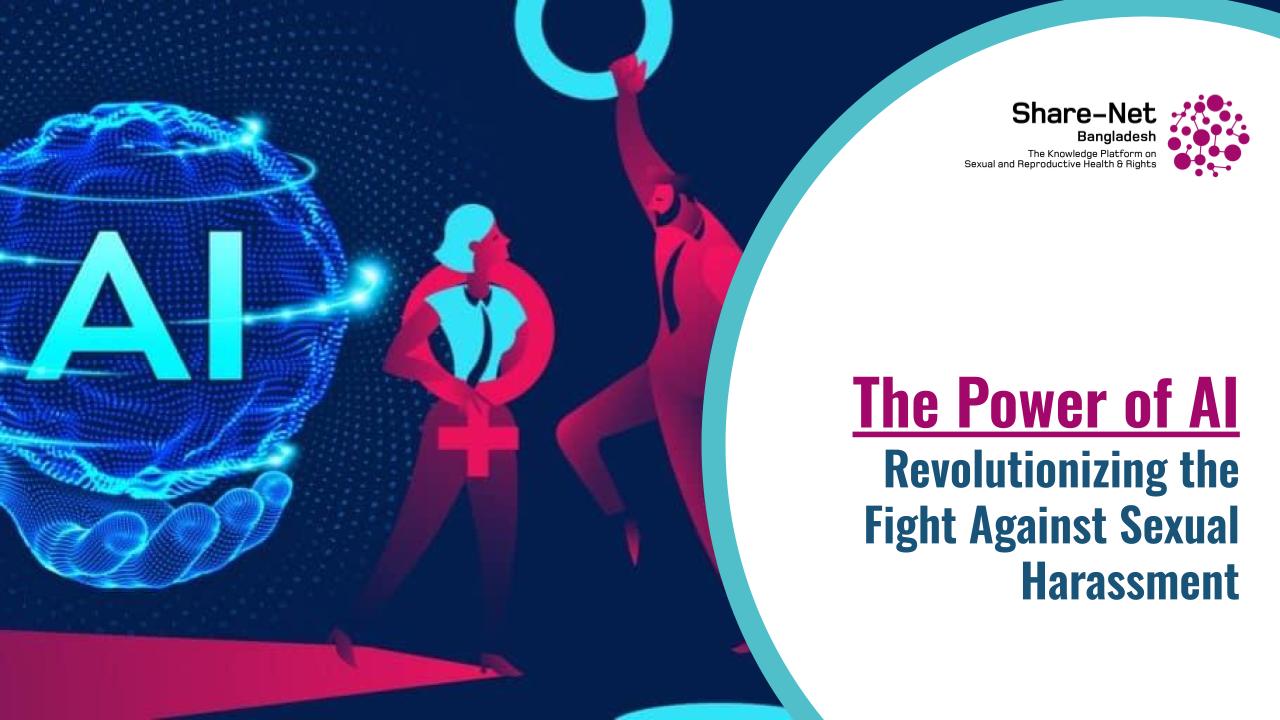The Power of AI: Revolutionizing the Fight Against Sexual Harassment
The issue of sexual harassment and assault remains a significant concern for women worldwide, with statistics showing that one in three women faces some form of sexual assault in their lifetime. Traditional methods are insufficient to address this widespread problem, but the development of technology, particularly Artificial Intelligence (AI), offers hope for establishing a secure environment and empowering women to speak out against harassment and abuse.
United Nations Women reports that one in three women faces some form of sexual assault in their lifetime, with South Asian countries like India and Bangladesh experiencing alarming statistics. The reluctance of most women and girls to disclose incidents of abuse is due to fear of societal consequences, victim-blaming, distrust in the justice system, and exhausting formal procedures. According to Safe City’s observations, there is a rape in India every 20 minutes, which is a disturbing reality that needs to be addressed right now.
In Bangladesh, at least 715 girls and women were raped in 2022, and a total of 26,695 rape cases were filed in the last five years. AI emerges as a potential game-changer in the fight against sexual harassment. Developing AI-supported reporting platforms that enable women to share their experiences anonymously can help break the silence surrounding sexual harassment.
These platforms provide a safe space to disclose incidents without fear of judgement or retaliation, and more women may come forward, giving authorities a more accurate understanding of the intensity and patterns of harassment. AI-driven safety applications can offer real-time assistance to women in distress, providing valuable resources and information to educate women about their rights and available support services.
AI-powered chatbots can play a crucial role in preventing harassment by providing real-time information on legal rights and reporting procedures. By giving women the information they need to protect themselves and take appropriate action, these chatbots can empower individuals to challenge and combat harassment effectively. Moreover, these technologies can help collect data on harassment incidents, which can be used to develop proactive strategies and policies aimed at preventing such incidents in the future.
AI can also identify patterns and potential risk factors associated with sexual harassment, inform policymakers and law enforcement agencies, and implement AI-based surveillance systems in public spaces and transport hubs. Facial recognition and behavioural analysis can help identify suspicious activities, while real-time alerts can prompt timely interventions. AI-powered chatbots can provide victims with a safe and confidential platform to report incidents, seek support, and access information about available resources.
AI can be utilised to tailor targeted public awareness campaigns about sexual harassment, emphasising the importance of reporting incidents and supporting survivors. These campaigns can be designed to reach different demographics effectively. However, AI must be approached with caution and responsibility, ensuring ethical considerations, transparency, and accountability. Collaboration between governments, NGOs, tech companies, and the public is essential to ensure the success and sustainability of AI-driven initiatives.
In conclusion, harnessing AI to prevent sexual harassment offers hope in our collective struggle for a safer society. By embracing the potential of technology and addressing barriers to reporting abuse, we can create an environment where women are empowered to speak out and perpetrators are held accountable for their actions. Together, let us work towards a future where every woman can live without fear of harassment and where her voice is heard and respected.
Source: Daily Observer


